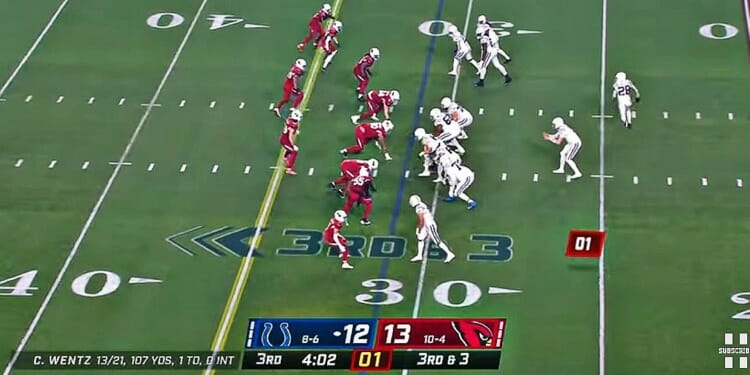People around the world are further depressed as a new COVID variant, Omicron takes hold and once again imposes restrictions on what we once knew as “normal,” at least before 2020. Under these conditions, and with little hope that the newly-imposed constraints will go away soon, there is an increasing need to look for coping mechanisms, ways to escape day-to-day reality. Sports watching is among them.
Among options to fill the void of face-to-face social interactions, particularly for men, are opportunities to watch sports on television or via other video windows. One can watch highly trained athletes and teams perform amazing feats as they go from defeat to victory, providing the outsider individual with a “Walter Mitty-like” experience.
These viewing opportunities come in many different sizes and shapes: Worldwide spectacles such as the upcoming 2022 winter and summer Olympics engage participants from all countries – in theory. This form of competition is supposedly built on national identity, bringing a sense of solidarity, encompassing both men and women in events that range from weightlifting to gymnastics. There are others, discussed below.
But the question is: to what end? Why should anyone derive benefits from watching others engaged in competitive sports?
Sports watching: The views of psychologists
Intuitively we may “think” there are personal rewards in spending time watching others play, and according to some experts you would be right.
“Professional sports play an interesting, yet often overlooked, role in public health,” says Sian Beilock, president of Barnard College in New York City and a former professor of psychology at the University of Chicago. “When we’re invested in the success of our favorite team, the highs and lows that athletes experience on the field can affect our physical, emotional, mental, and social well-being as sports fans.”
Dr. Daniel Wann, a psychology professor in the Northern American Journal of Psychology wrote that identifying with a sports team is “correlated with social-psychological health because it will result in increased social connections with others.”
“In the midst of all of the continued uncertainty and unrest, reengaging in something that’s familiar — something that can be a source of enjoyment and that typically provides an outlet for people — can potentially help in terms of boosting overall mood,” and further, “…helpful in terms of shifting people’s general feelings that we can get through this and reclaim some aspects of life that were temporarily unavailable to us”, says Kensa Gunter, a sport psychologist and executive board member of the U.S. Association for Applied Sport Psychology.
How is this “playing” out in the COVID era
Major sports continue almost everywhere with some form of regular seasons, playoffs, and national and international championships. These include soccer, rugby, cricket, tennis, golf, as well as American football, each of which attracts millions of fans. But competition is no longer increasingly played before live crowds, or in some cases, with very limited onsite spectators. Distance sports watching is “the” broad-based coping mechanism for many.
Indeed, team sports and their star performers create an “identity” base, with like-minded supporters actively engaged even when seeing events remotely. This interaction continues before, during or after a game or match with commentary – and often betting.
Just as the experts suggest, it creates a sense of community, a form of a shared universe outside real-life grimness, a way to experience virtual pain or pleasure, joy or frustration depending on the outcome, ergo a form of group mental therapy.
What we know about this subject in terms of available open access research or published articles is sparse. A study in the United Kingdom found that:
“Some 33% of fans say that they now watch football via a live internet stream at home rather than attend matches in person… a 1,950% increase in the total number of people (who were surveyed) streaming live football matches via the internet at home than there were before [COVID]…”
A limited poll done in March 2021, roughly one year after the first COVID-19 wave, found that “more than a third of Americans said that having sports back on their screens has had a positive effect on their mental health during the COVID pandemic.”
More on a broadly related subject – how media consumption, including TV watching during the pandemic affected human psychology – “Research conducted in Italy found people spending more time binge-watching during the pandemic. “In particular, women still proved more engaged in watching TV series during Covid-19 emergency while also showing higher levels of anxiety and stress than men. Men reported a higher motivation in bonding with others through watching TV series.”
It is not good news in terms of satisfying and sustaining interest
The same study in the United Kingdom mentioned above found that:
“.. .46% of fans said their preferred way of watching football was live at a ground prior to the pandemic. That figure has increased very slightly to 47% (since the pandemic) – suggesting people remain as excited as ever to get back to their nearest football ground and cheer on their team.”
And this seems to have been mirrored in the U.S. early on in the pandemic, where some claim “Lack of fans in the stands is a psychological cue that these games don’t mean as much.”
Perhaps more informative of the situation is a paper of the World Economic Forum that notes:
“Coronavirus has dramatically impacted professional sports this year, with most experiencing an enforced pause in activity. The industry showed amazing leadership in responding to the logistical and operational challenges that COVID-19 has presented, with the quick return of sports a great success story. Once matches resumed, however, data showed that viewership on television decreased across almost every major sport.”
Where do we go from here?
Globally we hoped that with vaccinations, therapeutics, and other precautions, COVID would no longer prevent our physical return to sports events in large numbers. This has not proven to be the case as each new variant makes such a possibility seem less likely. And we must not forget, players too are affected:
We do not know whether such disappointments will reduce interest in professional sports watching and spending for all the paraphernalia that goes with it and makes fortunes for owners and some players.
What we do know is that their creativity has been able to continue to generate huge revenue. Whether public continuing engagement and financial support for sports viewing are positive or negative is left to your behavior!
Editor’s Note: The opinions expressed here by Impakter.com columnists are their own, not those of Impakter.com. — In the Featured Photo: Carson Wentz highlights from Week 16 / Indianapolis Colts against the Arizona Cardinals, 26 Dec 2021 Source: screenshot from video









